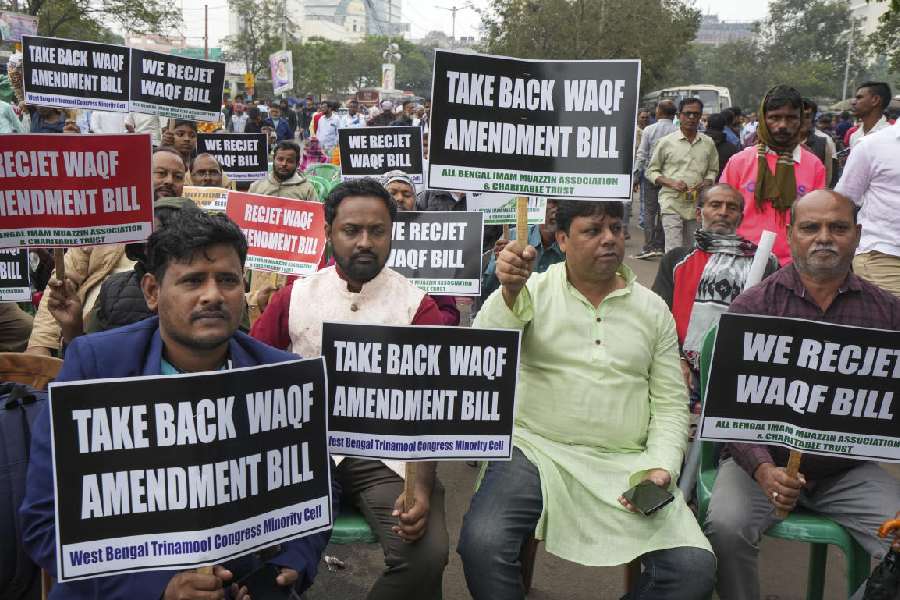A platform of civil society groups that had launched a statewide movement against the Narendra Modi government’s purported plan for a National Register of Citizens (NRC) has threatened to hit the streets again if the Centre enacts the proposed Waqf (Amendment) Bill, 2024, which allegedly violates at least four sections of
the Constitution.
On January 20, a delegation from the Joint Forum against NRC met the Joint Parliamentary Committee (JPC), formed to review the bill before its possible introduction in the Lok Sabha during the budget session, and flagged concerns over some of the alleged violations of the Constitution in the proposed legislation.
“We have detailed in our memorandum submitted to the JPC how several proposed amendments to the waqf law are against the constitutional rights of the Muslim community.... If the government passes the bill without considering our objections, we will launch a statewide movement and approach the Supreme Court,” said Prasenjit Bose, the convenor of the forum.
On Friday, 10 Opposition members of the JPC were suspended for a day after they resorted to uproarious protests, accusing the panel chairman of manipulating the proceedings to rush the bill. The JPC, headed by BJP MP Jagdambika Pal, plans to present its report to Parliament in the first week of the budget session, which starts on January 31.
During the movement against the NRC in 2019 and 2020, apart from holding mass rallies, and conventions across the state, the forum joined hands with several other organisations that took to the streets in different parts of the country and challenged the proposed population register in the Supreme Court.
Bose said forum members expected most anti-BJP parties to join the movement against the Waqf Amendment Bill.
Although the platform’s primary objective is to oppose the waqf bill, it has also raised concerns over the illegal encroachment on waqf properties in Bengal. The forum campaigned against the Mamata Banerjee government ahead of the November 13 Assembly bypolls for its lackadaisical attitude towards the encroachment. The forum supported the CPM and the ISF in the bypolls.
The Centre proposed an amendment to the existing Waqf Act (1995) in August. While the Centre asserted that the amended law, to be named the Unified Waqf Management, Empowerment, Efficiency, and Development Act, 2024, aimed to resolve issues in waqf property management, the Opposition argued that it undermined Muslim religious rights.
In the forum’s memorandum to the JPC, the outfit claims that clauses 9 and 11 of the bill seek to bring two non-Muslim members to the Central Waqf Council and State Waqf Boards, which is completely at odds with similar boards or committees formed for other religious communities, where members are from the respective faith.
According to the forum, the bill violates Article 14 of the Constitution of India which guarantees equality before the law wherein “The State shall not deny to any person equality before the law or the equal protection of the laws within the territory
of India”.
“Apart from this, the proposed amendments to the existing Act violate Articles 15, 25, and 26. Our representation has extensively explained how many proposed amendments are against the religious rights of Muslims,” said Bose.

